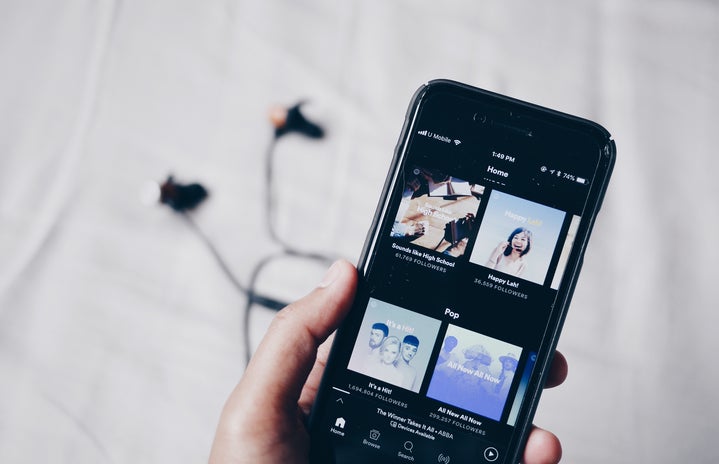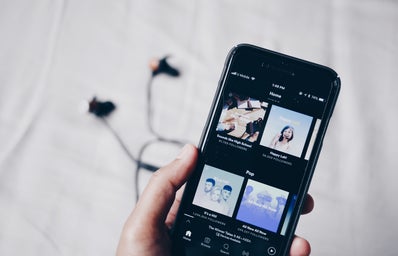For us lucky ones whose biggest challenge in lockdown is countering boredom, all this free time is a golden opportunity for listening to and reflecting on the music that we love. Normally I listen wracked with guilt because it’s midnight and I still haven’t done that essay. But it turns out that removing work from the equation hasn’t put my mind completely at ease.
Revisiting my teenage idol, Lana Del Rey, I was reminded of some of the controversy that surrounds her. Her first couple of albums were condemned by numerous publications and celebrities as antifeminist. Lorde branded her music ‘shirt-tugging, desperate, don’t leave me stuff’ and ‘not a good thing for young girls, even young people to hear’. While Sonic Youth’s Kim Gordon, another hero of mine, shattered my fantasy that the three of us might one day become friends and hang, with a scathing takedown, declaring that Lana ‘doesn’t even know what feminism is.’ In 2014 Lana only compounded these critiques when she remarked that feminism wasn’t an ‘interesting concept to her.’
Yet her most recent album, Norman Fucking Rockwell!, and her newfound political outspokenness, has the media back on side, triggering a spate of articles reinterpreting her as a feminist figure. It’s as if she’s redeemed herself, and us feminists can listen to her guilt-free. As someone who idolised her even while being told she conflicted with my feminist principles, seeing all her new defenders got me thinking more broadly about music and guilt. As both a feminist and a heavy Spotify user, I can appreciate that the content of many of my favourite songs is arguably problematic and it can be difficult to reconcile them with my political views.
With regards to Lana Del Rey specifically, it is obvious why she attracts so much heat. Her music deals with self-destruction, and relationships that often have a power balance heavily skewed towards older/richer/very distant/generally unpleasant men, who she still loves unconditionally. Abuse features. Yet, it seems strange to me that she should be accused of glamorising any of the above when so much of her music is incredibly sad. There is also much to commend her for. She is incredibly culturally literate, scattering her work with references to beat poetry and film noir, and an unashamedly feminine ‘cool girl’ in a climate that so often equates ‘coolness’ with androgyny.
But this is beside the point. Firstly, I don’t see Lana Del Rey’s work as validated by how closely it checks off various feminist criteria. If her music is taken as an expression of her experience, who are we to devalue it just for lacking the feistiness you might find in a Beyoncé track? None of us are perfect. We need music that expresses the less desirable aspects of ourselves, and female artists are not betraying womankind by doing so. We should also consider the possibility that, much like her name, Del Rey’s protagonists are made up. We uncritically accept music as a window into the artist’s life without factoring in creative license. Art and film are given far freer reign to explore difficult topics without being accused of promoting them, so why do we assume that song lyrics should double up as life-coaching instructions? Lyrics are poetry and they should be treated as such.
Something I struggle more to reconcile my feminism with is hip hop. It felt personal when Ava DuVernay tweeted that ‘to be a woman who loves hip hop is at times to be in love with your abuser.’ In a genre dominated by men, lyrics become problematic because they are sexist, not because they fall short of standards of independence or liberation. Excepting the work of proven abusers, like R. Kelly, who I have no desire to listen to, sometimes misogyny in tandem with tales of drug abuse or violence makes work seem confessional. Sexist lyrics can be touched with irony while rappers tell you what a shitty person they are or used to be.
Other times it’s clear that ain’t it. Catchy as a song might be, some lyrics are just, for lack of a better word, icky. Kanye West and Lil Pump’s ‘I Love It’ springs to mind. Then again, maybe that’s just the difference between a good song and a bad one. Although it does feel like sometimes a female Lana Del Rey will attract more criticism for being apolitical than a male Kanye does for outwardly being misogynistic. While plenty of great hip hop celebrates the female in a non-problematic way – take Kendrick rapping about stretch marks, and Q-Tip expounding nothing but respect for Bonita Applebaum – a lot of it doesn’t. Even though too often we’re a ‘bitch’ before anything else, I still want to listen to Biggie. Hip hop is a cultural product and artists, talented as they are, can inadvertently reveal to us the progress that still needs to be made in many areas. Ultimately hip hop is still a valuable form of social commentary, intelligently articulating experiences of poverty or racism. It contributes in so many ways, even as it falls short in others. Rather than write off talented artists, we just need to call them out where necessary and make them do better.
And let’s not forget, lyrics can move you, as can the melody, the bass, the artist’s voice in itself; music often has a lot more merit than just its lyrical content. Most of us have deeply personal relationships to music, and I guarantee that taking some time to reflect on your music taste won’t uncover a pit of internalised misogyny within you – but it does help to pass the time.



